
English для юристов. Гончар
.pdf
Part IV. GRAMMAR GUIDE
статня кількість. Вживання перед цими словами неозначеного артикля підкреслює наявність певної, хоча і невеликої, кількості:
We have little evidence. — У нас мало доказів.
We have a little evidence. — У нас є трохи доказів. We have few friends here. — Тут у нас мало друзів.
There were a few visitors, men and women. — Відвідувачів було кілька, чоловіки та жінки.
Числівник (The Numeral)
Кількісні числівники (Cardinal Numerals):
0 nought (zero, oh) |
6 six |
12 twelve |
1 one |
7 seven |
13 thirteen |
2 two |
8 eight |
14519…teen |
3 three |
9 nine |
20590…ty |
4 four |
10 ten |
100 a (one) hundred |
5 five |
11 eleven |
101 a hundred and one |
200 two hundred
1,000 a (one) thousand
1,100 a thousand and one hundred (eleven hundred)
100,000 a hundred thousand
1,000,000 a (one) million
Порядкові числівники (Ordinal Numerals):
1st first |
|
8th eighth |
20th twentieth |
2nd second |
9th ninth |
21st twenty5first |
|
3rd third |
10th tenth |
100th one (a) hundredth |
|
4th fourth |
11th eleventh |
101st one (a) hundred and first |
|
5th fifth |
|
12th twelfth |
1,000th one (a) thousandth |
6th sixth |
|
13th thirteenth |
100,000th one (a) hundred thousandth |
7th seventh |
14th fourteenth 1,000,000th one (a) millionth |
||
Дати |
|
|
|
1900 |
nineteen hundred |
|
|
1901 |
nineteen one |
|
|
1905 |
nineteen five |
|
|
1920 |
nineteen twenty |
|
|
380

Part IV. GRAMMAR GUIDE
1921 nineteen twenty5one
2000 two thousand
Арифметичні дії
2 + 5 = 7 two plus (and) five is seven
7 — 3 = 4 seven minus (take away) three is four 3 x 2 = 6 three multiplied by (times) two is six 9 / 3 = 3 nine divided by three is three
Дробові числівники
1/2 one second |
1/4 a quarter |
1/3 a (one) third |
3/4 three third 0.75 (nought) point seven five |
Конструкція there +to be
Конструкція there + to be вживається в тому разі, якщо необ5 хідно повідомити про наявність або відсутність предмета в певному місці. Вона є одним із способів уведення нової інфор5 мації, тому наступний іменник вживається з неозначеним артик5 лем в однині (у множині і з необчислюваними іменниками артикль відсутній), наприклад:
There is an unusually clear photograph of the missing man there. — Там є надзвичайно чітка фотографія зниклого чоловіка.
There are vacancies in our police station at the moment. — У нашій поліцейській дільниці зараз є вакансії.
There was silence in the court*room. — У залі суду була тиша. Форма дієслова визначається числом наступного іменника і
може співвіднести конструкцію з теперішнім (there is, there are), минулим (there was, there were) і майбутнім часом (there will be).
Питальні речення зі зворотом there + to be утворюються за загальними правилами: на початку речення ставиться дієслово to be у Present чи Past Indefinite, або will у Future Indefinite:
Is there a photograph of the missing man?
Are there any vacancies in your police station?
Заперечення утворюється за допомогою заперечної частки not, ужитої після дієслова, наприклад:
There are not vacancies in our police station.
Проте частіше вживається частка no як означення іменника, і в цьому разі артикль відсутній, наприклад:
There is no photograph of the missing man.
381

Part IV. GRAMMAR GUIDE
Дієслово (The Verb)
Видо часові форми дієслова
TENSES |
|
|
FORMS |
|
|
|
|
|
|
|
|
|
SIMPLE |
CONTINUOUS |
|
PERFECT |
PERFECT CONTINUOUS |
|
|
|
|
|
|
PRESENT |
Present Simple |
Present |
|
Present Perfect |
Present Perfect |
|
|
Continuous |
|
|
Continuous |
PAST |
Past Simple |
Past Continuous |
|
Past Perfect |
Past Perfect Continuous |
FUTURE |
Future Simple |
Future |
|
Future Perfect |
Future Perfect |
|
|
Continuous |
|
|
Continuous |
Simple Tenses. Дія, що відбувається в теперішньому, минулому або майбутньому часі, але не вказує на її характер, тривалість, завершеність чи передування іншій дії або певному моменту в минулому чи майбутньому. Можуть вживатися індикатори часу: usually, often, regularly, sometimes, every day, every month, once a week, last (next) week та ін. Наприклад:
He works in court. — Він працює в суді.
He worked in court in 1999. — Він працював в суді в 1999.
He will work in court next month. — Він буде працювати в суді наступного місяця.
Continuous Tenses. Дія, що триває в момент мовлення або в теперішній період часу, тривала в якийсь момент чи період часу в минулому, триватиме в певний момент чи період часу в май5 бутньому. Дія в розвитку. Можуть вживатися індикатори часу: now, at this moment, at that moment. Наприклад:
I am writing a law report now. — Я пишу доклад з права зараз.
I was writing a law report at the moment you phoned. — Коли ти зателефонував, я писав доклад з права.
I will be writing a law report at this time tomorrow. — У цей час завтра я писатиму доклад з права.
Perfect Tenses. Дія, що відбувалася до певного моменту чи періоду в теперішньому часі, минулому чи майбутньому; завер5 шена дія. Можуть вживатися індикатори часу: already, just, before, by that time, ever, never, lately та ін. Наприклад:
The investigator has already questioned prisoners. — Слідчий вже допитав в’язнів.
The investigator had questioned prisoners before the doctor submitted his report. — Слідчий допитав в’язнів до того, як лікар надав доповідь.
The investigator will have questioned prisoners by 7 o’clock tomorrow. —
382

Part IV. GRAMMAR GUIDE
Слідчий допитав в’язнів до 7 ранку.
Perfect Continuous Tenses. Дія, що почалася до моменту мов5 лення в теперішньому часі або до моменту мовлення в минулому чи майбутньому часі і триває до цього моменту. Дія в розвитку. Можуть вживатися індикатори часу: since 5 o’clock, for a month, for a long time, by the 23rd of June 2004. Наприклад:
I have been studying Criminology for a few years. — Я вивчаю кри* мінологію кілька років.
I had been studying Criminology for two hours when you came home. — Я вивчав кримінологію 2 роки, коли ви приїхали додому.
I will have been studying Criminology for two years by the end of the year. — До кінця року буде вже 2 роки, як я вивчаю кримінологію.
The Present Simple
Індикатори часу: often, usually, always, regularly, as a rule, every day
1) повторювана дія: I usually go to the Academy in the morning.
2) постійний стан: She lives in Ukraine.
3) незмінна істина,
загальновідомий факт: The Earth goes round the Sun.
• |
I/we/you/they |
go |
to the Academy every day. |
|
He/she/it |
goes |
|
У третій особі однини до інфінітива (без частки to) додається закінчення *s, *es (якщо дієслово закінчується на *s, *ss, sh, *ch,
*tch, *x). |
|
|
|
|
TO BE – am, are, is |
||
Наприклад: I study |
she studies |
||
I wash |
she washes |
You are a lawyer. Are |
|
you a lawyer? DO, DOES |
|||
|
|
||
|
|
|
? |
do |
I/we/you/they |
go to the Academy every day? |
||
|
does |
He/she/it |
|
|
|
|
|
|
|
|
|
- |
I/we/you/they |
|
do |
not go to the Academy every day. |
|
|
He/she/it |
|
does |
|
|
|
|
|
|
|
|
383
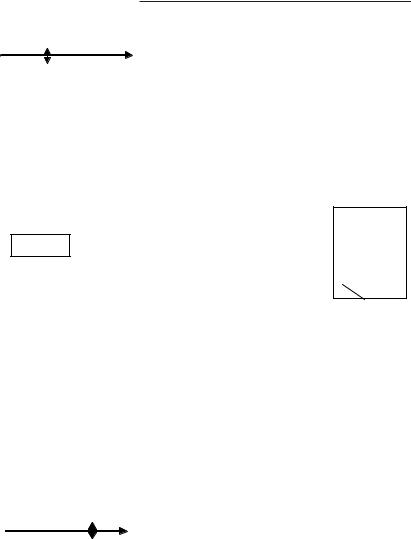
Part IV. GRAMMAR GUIDE
|
|
The Past Simple |
|
|
|
Індикатори часу: yesterday, the |
|
|
|
||
|
|
day before yesterday, last year, a month |
|
|
|
ago |
|
1) |
разова чи постійна дія в минулому: |
I studied Law at the |
|
|
|
|
Academy. |
2) |
дії, що відбувалися в минулому |
She sealed the |
|
|
одна за одною |
letter, put a stamp on it |
|
|
|
|
and posted it. |
TO BE
was, were
I worked in court 2 years ago. I was in Kiev. Was
I in Kiev? DID
Past Indefinite правильних дієслів (Regular Verbs) утворюєть5 ся додаванням закінчення 5ed.
Past Indefinite неправильних дієслів (Irregular Verbs) утворю5 ється за допомогою II форми дієслова.
? |
Did |
|
I, we, you, they, she, he, it |
work |
in the court 2 years ago? |
||
|
|
|
|
|
not work in the court 2 years ago. |
||
|
|
||||||
I, we, you, they, he, she, it |
did |
||||||
|
|
|
|
|
|
||
|
|
|
The Future Simple |
||||
|
|
|
|
|
Індикатори часу: tomorrow, the day |
||
|
|
|
|
|
|||
|
|
|
|
after tomorrow, in 5 minutes, in a year, soon |
|||
|
1) разова чи постійна дія |
|
I shall turn on the light |
||||
|
в майбутньому: |
|
since it’s rather dark here. |
||||
|
2) дії, які (не)можуть відбутися |
||||||
|
в майбутньому: |
|
He’ll probably be late. |
||||
384
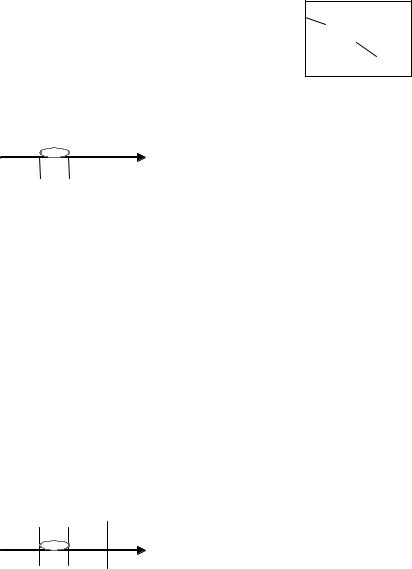
|
|
|
|
Part IV. GRAMMAR GUIDE |
|
|
|
|
|
|
I, we |
shall |
become a lawyer. |
|
• |
You, they, he, she, it |
will |
|
|
|
|
|
|
|
? |
|
shall |
I, we |
|
|
become a lawyer? |
|
will |
You, they, he, she, it |
||||
|
|
|
||||
- |
|
|
|
|
|
|
|
|
|
|
|
|
|
|
I, we |
|
shall |
not become a lawyer. |
||
|
|
|
||||
|
|
You, they, he, she, |
will |
|||
|
|
|
|
|||
|
|
|
|
|
|
|
I’ll be glad if you will come. We’ll go home
when I will finish the task.
The Present Continuous
Індикатори часу: now, at the mo* ment
1)дія, що виконується в момент мовлення: He is discussing the matter.
2)запланована дія в найближчому
|
|
майбутньому: |
|
|
|
I am leaving for Kyiv tomorrow. |
||||||
|
|
3) дії з прислівником always тощо, що виражають |
|
|
||||||||
|
|
роздратування та критику: |
You are always interrupting me! |
|||||||||
|
|
|
|
|
|
|
|
|
|
|
|
|
• |
I |
|
|
am |
|
discussing the matter now. |
|
|
||||
we, you, |
|
are |
|
|
|
|||||||
• |
they |
|
|
is |
|
|
|
|
|
|
||
|
|
|
|
|
|
|
|
|
|
|
|
|
|
|
am |
I |
|
|
|
|
|
|
lielying |
|
|
? |
|
are |
we, you, they |
|
discussing the matter now? |
die – dying |
|
|||||
|
|
is |
she, he, it |
|
|
|
|
|
|
|||
|
|
|
|
|
|
|
|
|
|
|
|
|
|
|
|
|
|
|
|
|
|
|
|
|
|
|
|
I |
|
|
|
am |
|
|
not discussing the matter now. |
|
|
|
– |
We, you, they |
|
are |
|
|
|
|
|
|
|||
She, he, it |
|
is |
|
|
|
|
|
|
||||
|
|
|
|
|
|
|
|
|
|
|
|
|
The Past Continuous
Індикатори часу: at five o’clock yesterday, at that moment, at midnight
385

Part IV. GRAMMAR GUIDE |
|
|
|
|
|
|
|
||||||||||||
|
|
|
1) дія, що відбувалася в певний момент He was discussing the |
||||||||||||||||
matter at |
|
|
|
|
|
|
|
|
|
|
|
|
|
|
|
||||
|
|
|
у минулому: |
|
|
|
|
|
|
|
|
that time yesterday. |
|||||||
|
|
|
2) минула дія в процесі, яка була |
I was speaking on the phone when |
|||||||||||||||
|
|
|
перервана іншою дією: |
my mother came. |
|||||||||||||||
|
|
|
|
|
|
|
|
|
|
|
|
|
|
|
|
|
|
|
|
• |
|
we, you, they |
|
were |
|
discussing the matter from 5 till 6 yesterday. |
|||||||||||||
|
I, she, he, it |
|
was |
|
|||||||||||||||
? |
|
|
|
|
|
|
|
|
|
|
|
|
|
|
|
discussing the matter from 5 till 6 yesterday? |
|||
|
|
|
|
|
|
|
|
|
|
|
|
|
|
|
|||||
|
were |
|
we, you, they |
|
|||||||||||||||
|
|
|
|
|
|
|
|
|
|
|
|
||||||||
|
|
|
was |
|
I, she, he, it |
|
|
|
|
|
|
|
|
|
|
||||
|
|
|
|
|
|
|
|
|
|
|
|
|
|
|
|
|
|
||
|
|
|
|
|
|
|
|
|
|
|
|
|
|
|
|
|
|
||
- |
|
|
We, you, they |
|
were |
|
|
|
|
|
|
not discussing the matter from 5 till 6 yesterday. |
|||||||
|
|
|
I, she, he, it |
|
was |
|
|
|
|
|
|
|
|
|
|
||||
|
|
|
|
|
|
|
|
|
|
|
|
|
|
|
|
||||
|
|
|
|
|
|
|
|
|
|
|
The Future Continuous |
||||||||
|
|
|
|
|
|
|
|
|
|
|
|
|
|
|
|
|
Індикатори часу: all day long, all |
||
|
|
|
|
|
|
|
|
|
|
|
|
|
|
|
|
|
|||
|
|
|
|
|
|
|
|
|
|
|
|
|
|
|
|
|
|||
|
|
|
|
|
|
|
|
|
|
|
|
|
|
|
|
|
day tomorrow, the whole evening, from |
||
|
|
|
|
|
|
|
|
|
|
|
|
|
|
||||||
|
|
|
|
|
|
|
|
|
|
|
|
|
|
|
|
|
five till six |
||
|
|
|
Дія в процесі в певний час |
I shall be discussing the matter |
|||||||||||||||
|
|
|
|
|
|
|
|
|
|
|
|
|
|
|
|
|
|
all day |
|
|
|
|
у майбутньому: |
|
|
|
|
|
|
|
|
tomorrow. |
|||||||
|
|
|
|
|
|
|
|
|
|
|
|
|
|
||||||
• |
|
|
I, we |
|
|
|
|
|
shall |
|
|
|
|
be discussing the matter at this time |
|||||
|
|
|
You, they, he, she, it |
|
will |
|
|
|
|
tomorrow. |
|||||||||
|
|
|
|
|
|
|
|
|
|
|
|
|
|
|
|
|
|||
? |
|
|
|
|
|
|
|
|
|
|
|
|
|
|
|
|
|
||
|
|
|
|
|
|
|
|
|
|
|
|
|
|
|
|
|
|||
|
|
shall |
I, we |
|
|
|
|
|
|
|
|
|
be discussing the matter at this time tomorrow? |
||||||
|
|
|
will |
You, they, he, she, it |
|
|
|
||||||||||||
- |
|
|
|
|
|
|
|
|
|
|
|
|
|
|
|
|
|
|
|
|
|
|
|
|
|
|
|
|
|
|
|
|
|
|
|
|
|
|
|
|
|
I, we |
|
|
|
|
|
shall |
|
|
|
not be discussing the matter at this time tomorrow. |
|||||||
|
|
|
|
|
|
|
|
|
|
|
|||||||||
|
|
|
You, they, he, she, it |
|
will |
|
|
|
|||||||||||
|
|
|
|
|
|
|
|
|
|
|
|||||||||
|
|
|
|
|
|
|
|
|
|
|
|
|
|
|
|
|
|
|
|
386
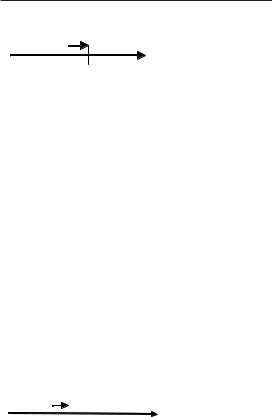
Part IV. GRAMMAR GUIDE
The Present Perfect
Індикатори часу: just, already, yet, ever, never, since, for
1)завершена дія: I have already discussed the matter.
2)дія, що почалася в минулому
та має результат на момент мовлення: She has changed a lot since last year.
• |
|
I/we/you/they |
|
have |
|
|
|
|
|
discussed (verb+ed or |
|
the matter. |
|||||||
|
He/she/it |
|
has |
|
|
|
|
|
Past Participle of the |
|
|||||||||
|
|
|
|
|
|
|
|
|
|
||||||||||
|
|
|
|
|
|
|
|
|
|
|
|
|
|
|
irregular verb) |
|
|
|
|
|
|
|
|
|
|
|
|
|
|
|
|
|
|
|
|
|
|||
|
|
|
|
|
|
|
|
|
|
|
|
|
|
|
|
|
|
||
|
|
|
|
|
|
|
|
|
|
|
|
|
|
|
|
|
|||
? |
|
have |
|
I/we/you/they |
|
discussed the matter? |
|
|
|||||||||||
|
|
has |
|
He/she/it |
|
|
|
|
|
|
|
|
|
|
|||||
- |
|
|
|
|
|
|
|
|
|
|
|
|
not discussed the matter. |
||||||
|
I/we/you/they |
|
|
|
have |
|
|
||||||||||||
|
|
He/she/it |
|
|
|
has |
|
|
|
|
|
|
|
||||||
|
|
|
|
|
|
|
|
|
|
|
|
|
|
|
|
|
|
|
|
|
|
|
|
|
|
|
|
|
|
|
|
|
|
|
|
|
|
|
|
|
|
|
|
|
|
|
|
|
|
|
|
|
The Past Perfect |
|
|
|
|||
|
|
|
|
|
|
|
|
|
|
|
|
|
|
|
Індикатори часу: by, by the time, |
||||
|
|
|
|
|
|
|
|
|
|
|
|
|
|
|
|||||
|
|
|
|
|
|
|
|
|
|
|
|
|
|
|
|||||
|
|
|
|
|
|
|
|
|
|
|
|
|
|
|
after |
|
|
|
|
|
|
|
|
|
|
|
|
|
|
|
|
|
|
|
|
|
|
||
|
|
Минула дія, що |
|
була завершена до іншої дії |
|||||||||||||||
|
|
або до певного моменту в минулому: |
|
He had discussed the |
|||||||||||||||
matter by the time I got there. |
|
|
|
||||||||||||||||
|
|
|
|
|
|
|
|
|
|
|
|||||||||
• |
|
I/we/you/they |
|
|
had |
|
discussed (verb+ed or PII |
|
the matter by the time I got |
||||||||||
|
|
He/she/it |
|
|
|
|
|
of the irregular verb) |
|
|
there. |
||||||||
? |
|
|
|
|
|
|
|
|
|
|
|
|
|
|
|
|
|
||
|
|
|
|
|
|
discussed the matter by the time I got there? |
|||||||||||||
|
had |
I/we/you/they |
|
|
|||||||||||||||
|
|
|
He/she/it |
|
|
|
|
|
|
|
|
|
|
|
|
|
|||
– |
|
|
|
|
|
|
|
not discussed the matter by the time I got there. |
|||||||||||
|
|
|
|
|
|
||||||||||||||
|
I/we/you/they |
|
had |
|
|
||||||||||||||
|
|
He/she/it |
|
|
|
|
|
|
|
|
|
|
|
|
|
||||
|
|
|
|
|
|
|
|
|
|
|
|
|
|
|
|
|
|
|
|
387
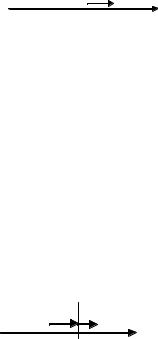
Part IV. GRAMMAR GUIDE |
|
|
|
|
|||||
|
|
|
|
|
|
The Future Perfect |
|
|
|
|
|
|
|
|
|
|
Індикатори часу: by, by the time, |
||
|
|
|
|
|
|
|
|||
|
|
|
|
|
|
|
by then, before |
|
|
|
Дія, яка буде завершена до певного |
He will have discussed |
|||||||
the matter моменту в майбутньому: |
by 8 p.m. tomorrow. |
||||||||
|
|
|
|
|
|
|
|
|
|
• |
I/we/you/they |
|
will have |
|
discussed (verb+ed or PII |
|
the matter by 8 p.m. |
||
|
He/she/it |
|
|
|
|
of the irregular verb) |
|
tomorrow. |
|
|
|
|
|
|
|
|
|
|
|
|
|
|
|
||||||
? |
Wil |
I/we/you/they |
have discussed the matter by 8 p.m. tomorrow? |
||||||
|
l |
He/she/it |
|
|
|
|
|
|
|
_ |
|
|
|
|
not have discussed the matter by 8 p.m. tomorrow. |
||||
|
|
|
|||||||
I/we/you/they |
|
will |
|
||||||
|
He/she/it |
|
|
|
|
|
|
|
|
|
|
|
|
|
|
|
|
|
|
The Present Perfect Continuous
Індикатори часу: already, since, for
Дія, що почалася в минулому та He has been discussing the продовжується до моменту мовлення: matter for 2 hours.
• |
I/we/you/they |
|
have been |
discussing the matter for 2 hours. |
||||
He/she/it |
|
|
has been |
|||||
|
|
|
|
|
|
|
|
|
|
|
|
|
|
|
|
|
|
? |
have |
|
I/we/you/they |
|
|
been discussing the matter for 2 hours? |
||
|
has |
|
He/she/it |
|
|
|
||
|
|
|
|
|
|
|
|
|
|
|
|
|
|
|
|||
– |
I/we/you/they |
|
have |
|
been not discussing the matter for 2 hours. |
|||
|
He/she/it |
|
|
has |
|
|
||
|
|
|
|
|
|
|
|
|
388
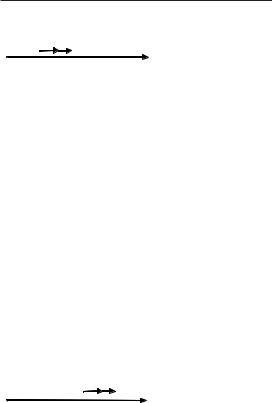
Part IV. GRAMMAR GUIDE
The Past Perfect Continuous
|
|
|
|
|
|
|
|
|
|
|
Індикатори часу: for the last two hours |
||
|
|
|
|
|
|
|
|
|
|
|
|||
|
|
|
|
|
|
|
|
|
|
|
|
||
|
Тривала дія, яка почалася до якогось He had been discussing |
||||||||||||
|
|
|
|
|
|
|
|
|
|
|
|
|
the matter |
|
моменту в минулому і або |
|
for 2 hours already when her |
||||||||||
|
продовжувалась у цей момент, або mother came. |
||||||||||||
|
закінчилась перед ним: |
|
|
||||||||||
• |
|
|
|
|
|
|
|
|
|
|
|
|
|
I/we/you/they |
|
had been |
|
|
discussing |
the matter for 2 hours already |
|||||||
|
He/she/it |
|
|
|
|
|
|
|
|
when the phone rang. |
|||
|
|
|
|
|
|
|
|
|
|
|
|
||
|
|
|
|
|
|
|
|
|
|
|
|||
? |
had |
I/we/you/they |
|
|
been discussing the matter for 2 hours already |
||||||||
|
|
He/she/it |
|
|
|
|
when the phone rang? |
||||||
|
|
|
|
|
|
|
|
|
|
|
|||
– |
I/we/you/they |
had |
|
|
|
not been discussing the matter for 2 hours already |
|||||||
|
He/she/it |
|
|
|
|
|
|
when the phone rang. |
|||||
|
|
|
|
|
|
|
|
|
|
|
|||
|
|
|
|
|
|
|
The Future Perfect Continuous |
||||||
|
|
|
|
|
|
|
|
|
|
|
Індикатори часу: by the firstt of June, |
||
|
|
|
|
|
|
|
|
|
|
|
|||
|
|
|
|
|
|
|
|
|
|
||||
|
|
|
|
|
|
|
|
|
2004 |
|
|
||
|
|
|
|
|
|
|
|
|
|
|
|||
|
Тривала дія, яка почнеться |
|
He will have been discussing the |
||||||||||
|
до якогось |
|
|
|
|
|
|
|
|
|
|||
|
моменту в майбутньому |
|
matter for two hours when you |
||||||||||
|
і буде ще |
|
|
|
|
|
|
|
|
|
|||
|
тривати в цей момент |
|
come at three o’clock. |
||||||||||
|
|
|
|
|
|
|
|
|
|||||
• |
I/we/you/they |
|
will have |
|
|
been |
|
the matter for 2 hours when you |
|||||
He/she/it |
|
|
|
|
|
|
|
discussing |
|
||||
|
|
|
|
|
|
|
|
|
come at three o’clock. |
||||
|
|
|
|
|
|
|
|
|
|
|
|
|
|
|
|
|
|
|
|
|
|
|
|
|
|
|
|
? |
Will |
|
I/we/you/they |
||
|
He/she/it |
||||
|
|
|
|||
_ |
|
|
|
|
|
|
|
|
|
|
|
|
|
|
|||
I/we/you/they |
will |
|
|||
|
He/she/it |
|
|
|
|
|
|
|
|
|
|
have been discussing the matter
for 2 hours when you come at 3 o’clock?
not have been discussing the matter
for 2 hours when you come at 3 o’clock.
389
